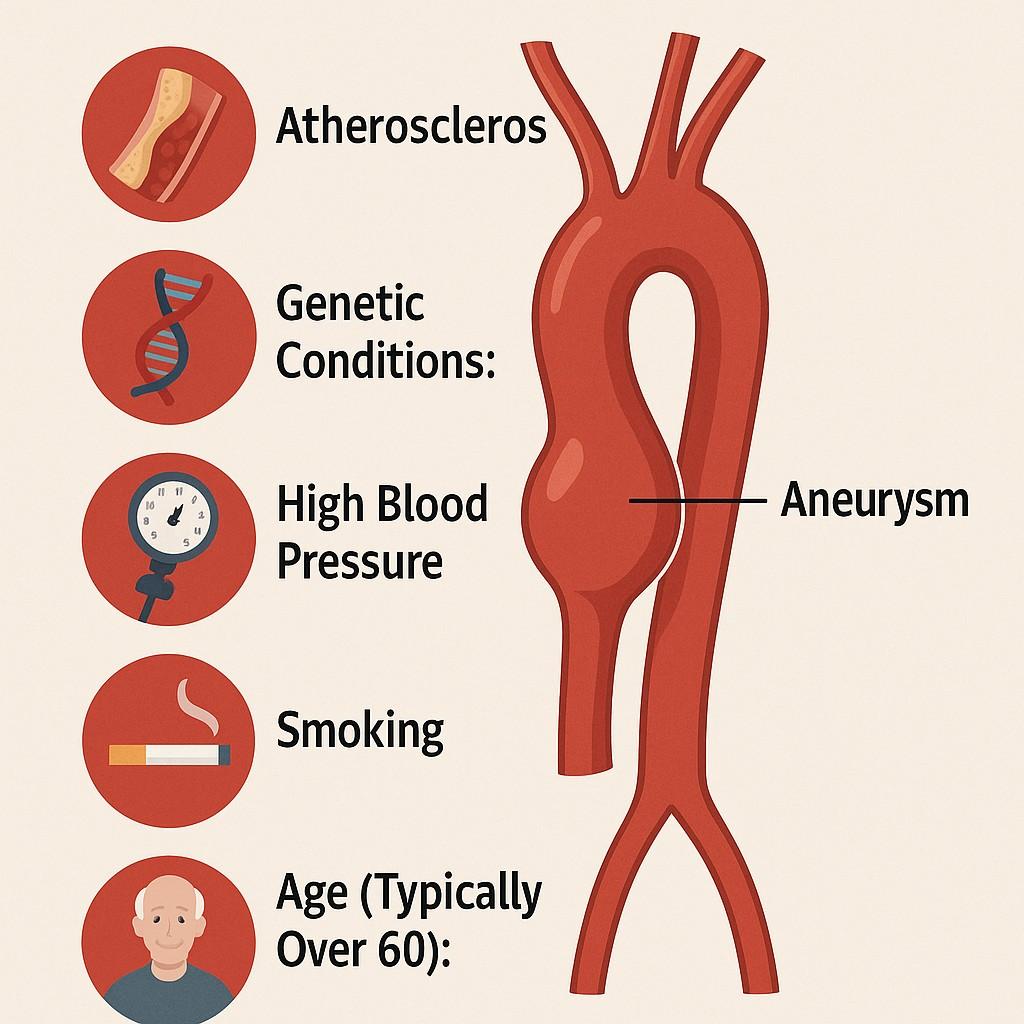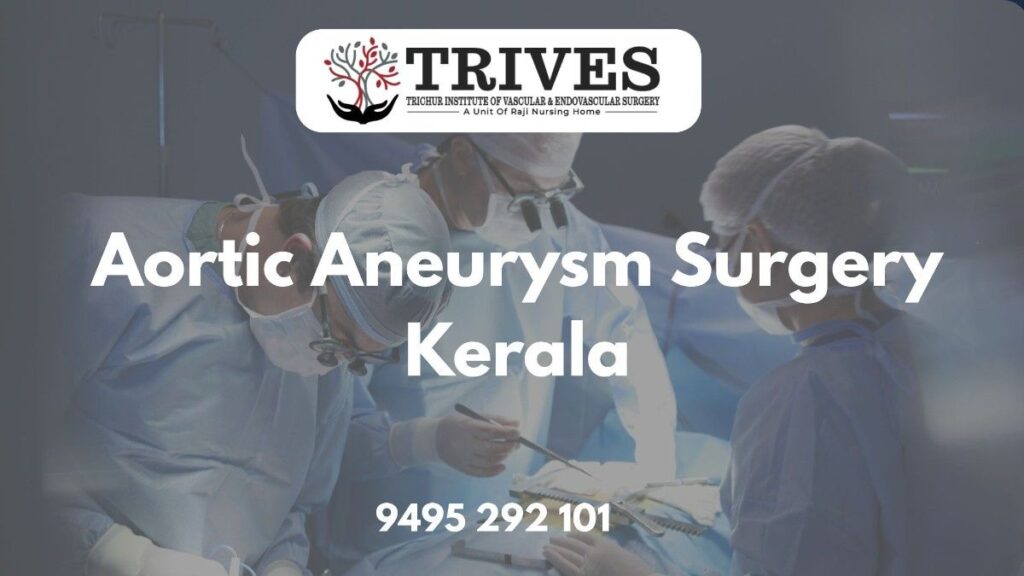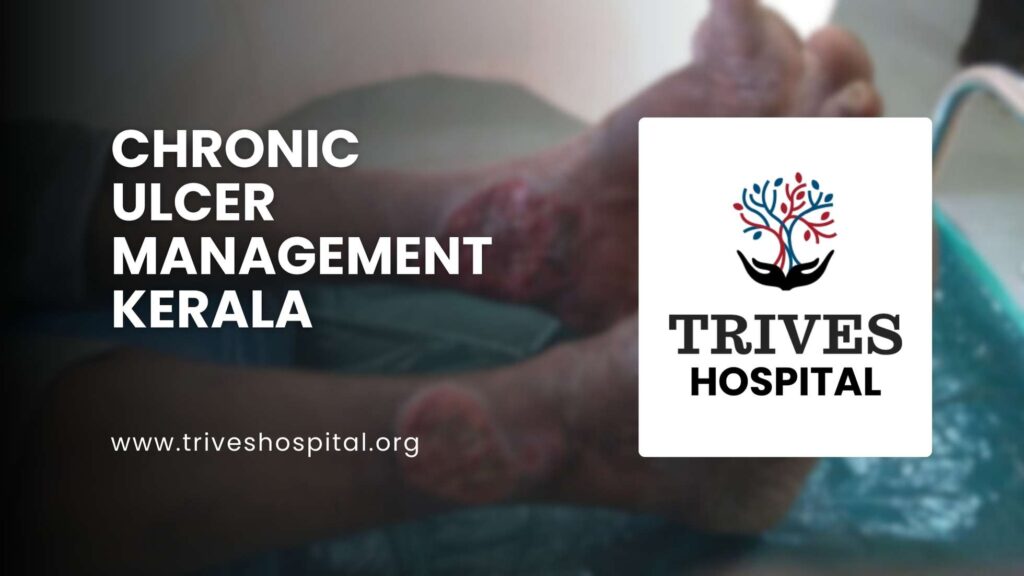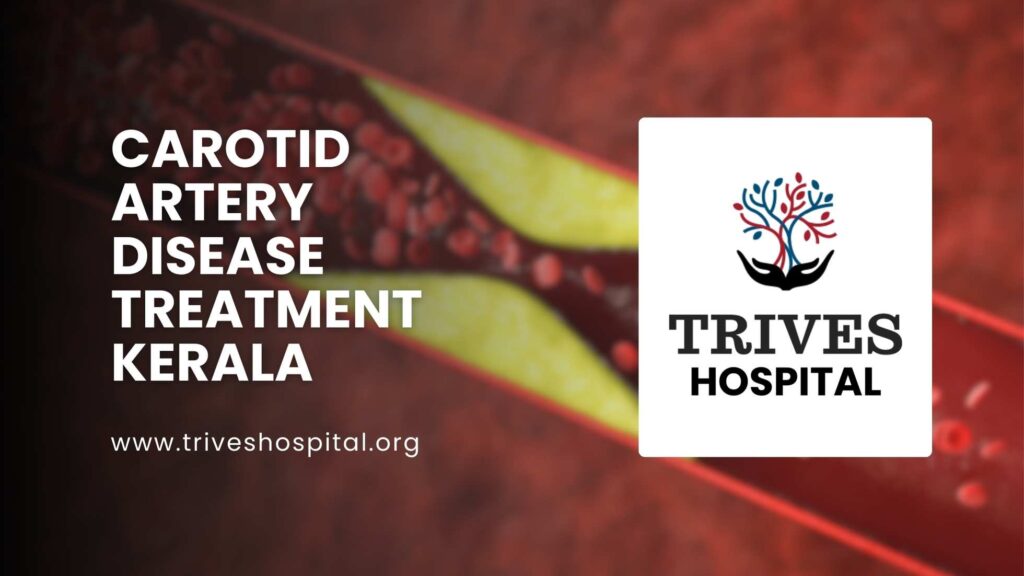The human heart and its intricate system of blood vessels form the foundation of life. Among the many cardiovascular threats, aortic aneurysms stand out due to their silent but potentially lethal nature. In Kerala, a state known for its advanced healthcare infrastructure, aortic aneurysm surgery has made significant strides in both technique and success rate. At the forefront of this progress is Trives Hospital, located in Thrissur, offering cutting-edge treatments and compassionate care for patients with this condition.
If you’re looking for safe, expert, and affordable aortic aneurysm surgery in Kerala, Trives Hospital is your trusted partner. This article offers a comprehensive understanding of the condition, treatment, recovery, and why Trives Hospital is considered one of the best hospitals for aortic aneurysm surgery in Kerala.
Understanding Aortic Aneurysms
An aortic aneurysm is a serious vascular condition characterized by a localized enlargement or ballooning of the aorta — the body’s largest and most vital artery. This condition arises due to a weakening of the arterial wall, and if left untreated, it can result in life-threatening complications such as rupture or aortic dissection. Because the aorta carries blood from the heart to the rest of the body, any abnormality in this artery can have severe consequences.
While aneurysms can develop in any blood vessel, those occurring in the aorta are particularly dangerous because of the high-pressure blood flow. Depending on the location and extent of the aneurysm, complications can vary widely, influencing the urgency and approach of surgical intervention.
Types of Aortic Aneurysms
Abdominal Aortic Aneurysm (AAA)
The most common type of aortic aneurysm, AAA typically forms in the lower part of the aorta, within the abdomen. These aneurysms often grow slowly without symptoms, but a rupture can lead to sudden and severe internal bleeding, which is often fatal if not treated immediately.Thoracic Aortic Aneurysm (TAA)
Occurring in the upper part of the aorta within the chest, TAAs are relatively rarer but equally dangerous. Symptoms may include chest pain, shortness of breath, or coughing. Rupture or dissection of a thoracic aneurysm can cause rapid death if not managed quickly.
Types of Aortic Aneurysm Surgery
Patients diagnosed with aortic aneurysms have several surgical options available in Kerala, depending on the size, location, and complexity of the aneurysm. The three main approaches include:
1. Endovascular Aneurysm Repair (EVAR)
EVAR is a minimally invasive procedure used primarily for abdominal aortic aneurysms (AAA). During this surgery:
A stent-graft (a fabric-covered metal mesh) is introduced through small incisions in the groin.
The stent is guided through the femoral arteries to the aneurysmal site.
Once in place, the graft reinforces the weakened section of the aorta, redirecting blood flow through the stent and away from the aneurysm.
EVAR is the gold standard for anatomically suitable aneurysms and has dramatically reduced recovery time, operative risk, and hospitalization duration.
Kerala’s top-tier hospitals are fully equipped for EVAR procedures, offering precise preoperative imaging, expert deployment techniques, and post-operative monitoring systems to ensure long-term graft success.
2. Thoracic Endovascular Aortic Repair (TEVAR)
TEVAR is a similar approach but is used for thoracic aortic aneurysms. Like EVAR, this method avoids open chest surgery and:
Involves the insertion of a thoracic stent-graft through femoral or iliac arteries.
Requires meticulous planning and imaging due to the sensitive structures in the thoracic cavity, including the spinal cord and aortic branches.
TEVAR is widely practiced in Kerala for patients with descending thoracic aortic aneurysms and is associated with fewer complications compared to traditional open repair.
3. Open Abdominal Aortic Aneurysm Repair
Open surgery is preferred in cases where endovascular repair is not feasible, such as in anatomically complex aneurysms or when endografts are contraindicated.
In this approach:
A large abdominal incision is made.
The aneurysmal portion of the aorta is clamped, opened, and replaced with a synthetic graft.
This procedure is more invasive and requires longer recovery but offers durable long-term outcomes.
Kerala’s leading vascular and cardiothoracic surgery units have vast experience in handling such open AAA repair surgeries, especially for patients unfit for EVAR due to anatomical or systemic reasons.
4. Operation for Thoracoabdominal Aortic Aneurysm (TAAA)
This is one of the most complex aortic surgeries and involves replacing a long segment of the aorta that spans both thoracic and abdominal regions.
The procedure demands advanced surgical expertise and multidisciplinary support, including vascular, cardiac, anesthetic, and critical care teams.
Often performed in highly specialized tertiary care centers in Kerala, this surgery has seen improved outcomes due to the availability of hybrid operating rooms and intraoperative imaging.
Causes of Aortic Aneurysm

Common Causes of Aortic Aneurysm
Atherosclerosis (Hardening of the Arteries):
This is the most common cause. Plaque buildup can weaken the aortic wall, increasing the risk of aneurysm formation.Genetic Conditions:
Inherited disorders such as Marfan syndrome, Ehlers-Danlos syndrome, and Loeys-Dietz syndrome can compromise connective tissue strength, making individuals more prone to aneurysms.High Blood Pressure (Hypertension):
Constant pressure exerted on the artery walls can lead to deterioration and eventual bulging of the aorta.Smoking:
Tobacco use significantly increases the risk of both developing and rupturing an aneurysm due to its damaging effect on blood vessels.Age (Typically Over 60):
Aging naturally leads to the weakening of blood vessel walls. Most aortic aneurysms are diagnosed in individuals over 60.Trauma or Injury:
Severe chest or abdominal injuries, often from car accidents or blunt trauma, can lead to the formation of a thoracic or abdominal aortic aneurysm.
Importance of Regular Screening for Aortic Aneurysms
Aortic aneurysms are often referred to as “silent killers” due to their tendency to remain asymptomatic until they reach a critical stage or rupture unexpectedly. This lack of early symptoms makes regular screening not just important—but potentially lifesaving. Individuals with high-risk profiles, such as men over the age of 60, smokers, those with high blood pressure, or people with a family history of aneurysms, are particularly vulnerable. For these individuals, routine vascular check-ups are essential for early detection and prevention.
At Trives Hospital, we place a strong emphasis on proactive cardiovascular health monitoring. Our dedicated vascular team is skilled in identifying abnormalities through advanced imaging technologies, such as duplex ultrasound, CT angiography, and MRI. These tools enable us to detect even small aneurysms that might otherwise go unnoticed. Early identification allows us to take preventive action or prepare for timely aortic aneurysm surgery in Kerala before complications arise.
When detected early, aneurysms can often be managed conservatively through lifestyle modifications and medical therapy. However, in cases where surgical intervention is necessary, Trives Hospital offers state-of-the-art aortic aneurysm surgery Kerala residents can trust. Our multidisciplinary approach includes vascular surgeons, interventional radiologists, and cardiologists working in tandem to ensure every patient receives personalized, evidence-based treatment.
Trives Hospital for Aortic Aneurysm Surgery in Kerala
At Trives Hospital, we are committed to excellence in vascular and endovascular care, standing at the forefront of aortic aneurysm management in Kerala. As a trusted center for aortic aneurysm surgery Kerala residents rely on, we bring together a team of highly skilled vascular surgeons, interventional radiologists, cardiologists, and critical care specialists to deliver holistic, patient-focused care.
Multidisciplinary Aortic Aneurysm Care at Trives Hospital
Aortic aneurysms, particularly when left undetected, can pose life-threatening complications. That’s why our approach to treatment is rooted in comprehensive care—combining prevention, precise diagnosis, surgical excellence, and long-term follow-up.
Our multidisciplinary care model ensures that each patient receives:
Thorough Vascular Assessment
We begin with advanced vascular imaging—including CT angiography, MR angiography, and duplex scans—to accurately diagnose aneurysm size, location, and risk of rupture.Strict Infection Control Protocols
Surgical site infections and graft-related infections are serious risks in vascular surgery. At Trives Hospital, we enforce stringent preoperative and postoperative infection control measures to protect patient outcomes.Endovascular Revascularization
For suitable cases, we offer minimally invasive options like Endovascular Aneurysm Repair (EVAR), ensuring quicker recovery, less postoperative pain, and minimal scarring.Pedal Loop Reconstruction
In complex cases involving peripheral vascular disease or compromised lower limb circulation, we provide pedal loop reconstruction to restore blood flow, prevent limb loss, and promote vascular health.
Meet the Expert: Dr. Vineeth Kumar P M
Consultant Vascular and Endovascular Surgeon, TRIVES Hospital
When it comes to the management of complex vascular conditions — including aortic aneurysm surgery in Kerala — the presence of an experienced, precise, and well-trained specialist can make all the difference. At TRIVES Hospital, a center of excellence in vascular and endovascular care, Dr. Vineeth Kumar P M stands as a pillar of expertise and dedication in the field. He is one of the most sought-after names for vascular interventions and has been instrumental in transforming patient outcomes with his evidence-based, minimally invasive approach.
Educational Background & Medical Credentials
Dr. Vineeth Kumar P M brings with him a stellar academic track record, having trained at some of the most prestigious medical institutes in India:
MBBS – Government Medical College, Kozhikode
MS in General Surgery – Postgraduate Institute of Medical Education & Research (PGIMER), Chandigarh
MCh in Vascular Surgery – Sree Chitra Tirunal Institute for Medical Sciences & Technology (SCTIMST), Trivandrum
FIAGES – Fellowship in Minimal Access Surgery (Laparoscopic Surgery)
FMAS – Fellowship in Minimal Access Surgery
Each stage of his academic journey has refined his understanding of vascular anatomy, surgical precision, and patient-centric care. His robust educational foundation enables him to handle both routine and rare vascular disorders with remarkable confidence.
Advanced Endovascular & Imaging Science Training
Dr. Vineeth has gone a step further to gain hands-on training in cutting-edge endovascular techniques, particularly vital for conditions like aortic aneurysms, where minimally invasive approaches can be life-saving. His specialized training includes:
Medanta – The Medicity, Delhi – Outstation Endovascular Training
Sir Ganga Ram Hospital, Delhi – Advanced Endovascular Intervention
ISIR, SCTIMST, Trivandrum – Comprehensive training in Imaging Science and Interventional Radiology
These training programs have armed him with the skills to diagnose, manage, and treat complex vascular diseases, including thoracic and abdominal aortic aneurysms, using the latest endovascular devices and imaging technologies.
Trives Hospital: Contact Details
Feel free to reach out to us for consultations, appointments, or second opinions.
Phone Numbers:
📞 9495 292 101
📞 +91 94952 92866
Location:
📍 D.N Menon Road, Chembukkavu, Thrissur 680020, Kerala, India
Email Address:
📧 info@trives.in
We’re available 24/7 for emergency consultations and admissions related to aortic aneurysm surgery in Kerala.
FAQ
1. What is the success rate of aortic aneurysm surgery at Trives Hospital?
Trives Hospital has a 95%+ success rate for both open and endovascular aortic aneurysm surgeries in Kerala, thanks to our expert team and technology.
2. How long does the surgery take?
Open repair may take 3–5 hours, while EVAR typically takes 1–2 hours.
3. Is aortic aneurysm surgery painful?
With modern anesthesia and pain management techniques, patients experience minimal pain during and after the procedure.
4. Can the aneurysm come back after surgery?
While rare, recurrence is possible. Regular follow-ups and imaging help in early detection.
5. What is the cost of aortic aneurysm surgery in Kerala?
Costs vary based on the procedure, but Trives offers competitive pricing. Contact us for detailed packages.
6. How soon can I return to work after surgery?
Recovery takes 4–8 weeks, depending on the type of surgery and your general health.
7. Is it safe for elderly patients to undergo this surgery?
Yes, with proper evaluation and care, many elderly patients undergo successful aortic aneurysm surgery in Kerala at Trives Hospital.
8. Does Trives Hospital accept insurance?
Yes, we accept most Indian and international insurance providers.
9. Are international patients offered support with travel and lodging?
Absolutely. We provide end-to-end support including visa, accommodation, and translation services.
10. How can I book an appointment?
Simply call 📞 9495 292 101 or 📞 +91 94952 92866, or email 📧 info@trives.in.


